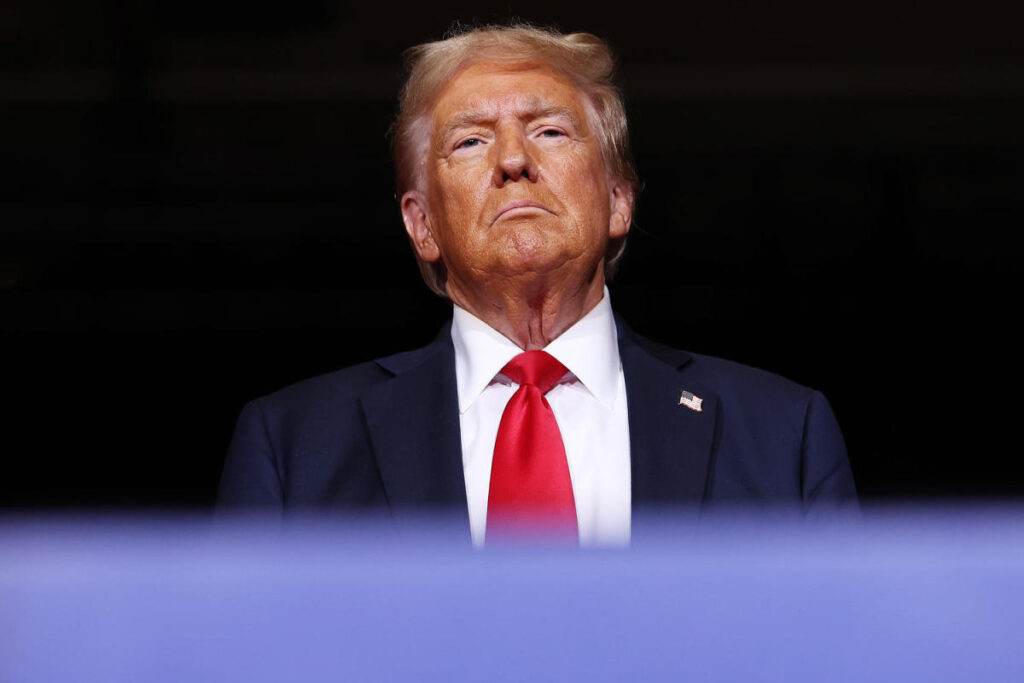Donald Trump’s 2020 presidential campaign remains marked by his impressive yet insufficient 74 million votes, a record for a Republican candidate, but insufficient for securing the presidency, as he lost both the popular vote and the Electoral College to President Joe Biden. The aftermath of his defeat has been characterized by a persistent obsession for Trump and his supporters, including a refusal to accept the election results, culminating in the Capitol riot and dominating political discourse for subsequent years. Only recently has Trump acknowledged his narrow loss but quickly reverted to echoing unsubstantiated claims of voter fraud. With Biden stepping back from a reelection campaign, Trump faces off against Vice President Kamala Harris, and as polling indicates a tight race, it raises concerns that the results may not be known on election night.
A significant concern for Trump’s campaign is the effectiveness of his ground game, particularly in mobilizing voters. Trump’s team has largely outsourced get-out-the-vote efforts to aligned groups, such as Turning Point Action and America PAC, led by Charlie Kirk and Elon Musk, respectively. Despite their allegiance to Trump, neither group possesses the experience necessary for executing a sophisticated voter mobilization strategy. Reports indicate that the Musk PAC’s operations suffer from issues, including unreliable data, which could significantly impact Trump’s ability to secure votes in battleground states where elections could hinge on a slim margin.
The battleground states of Michigan, Pennsylvania, and Wisconsin are once again crucial to the upcoming election, having shifted from being strongholds for Democrats to favoring Trump in 2016. However, the electorate in these states leaned back to Biden in 2020, highlighting the potential for a tightly contested race. Trump’s campaign, echoing strategies from past elections, aims to reclaim these states while also focusing efforts on others such as Arizona, Georgia, and North Carolina. Notably, Trump’s recent decision to campaign in states like New Mexico and Virginia—believed to be less competitive—might prove detrimental, drawing resources away from critical battleground areas.
Independent voters, particularly those who supported former candidate Nikki Haley, also represent a significant demographic in the upcoming election. Harris has actively sought to attract moderate Republicans with endorsements from notable figures such as former Vice President Dick Cheney and California Governor Arnold Schwarzenegger. Conversely, Trump’s ongoing incendiary rhetoric risks alienating these voters. Despite Haley endorsing Trump, the lack of joint campaigning may lead some of her supporters to abstain from voting or choose alternative candidates, potentially hurting Trump in a close election.
Trump’s campaign also appears intent on mobilizing younger male voters, a demographic with the potential to sway the election results. Recent polling indicates a stark gender gap, with young men showing a much closer divide in support between Harris and Trump, while young women strongly favor Harris. To tap into this demographic, Trump has engaged with popular platforms frequented by young men, such as Joe Rogan’s podcast, providing an alternative outreach strategy. The attention given to this group could be pivotal if it translates into increased voter turnout.
Finally, Trump’s outreach to voters of color, particularly Black and Latino voters, presents both opportunities and challenges. Despite historical lows in support from these demographics, there is potential for Trump to improve his standing, especially among Latinos, compared to Biden. However, controversial comments made by Trump—and those featured at his rallies—risk alienating these communities. His comparisons of Detroit to a “developing nation” and the racially charged jokes made at public events illustrate how such rhetoric can harm his appeal among these critical voter groups. As analytics highlight the significance of Latino populations in battleground states like Pennsylvania, the risk of offensive communications poses a serious threat to Trump’s electoral strategy.

